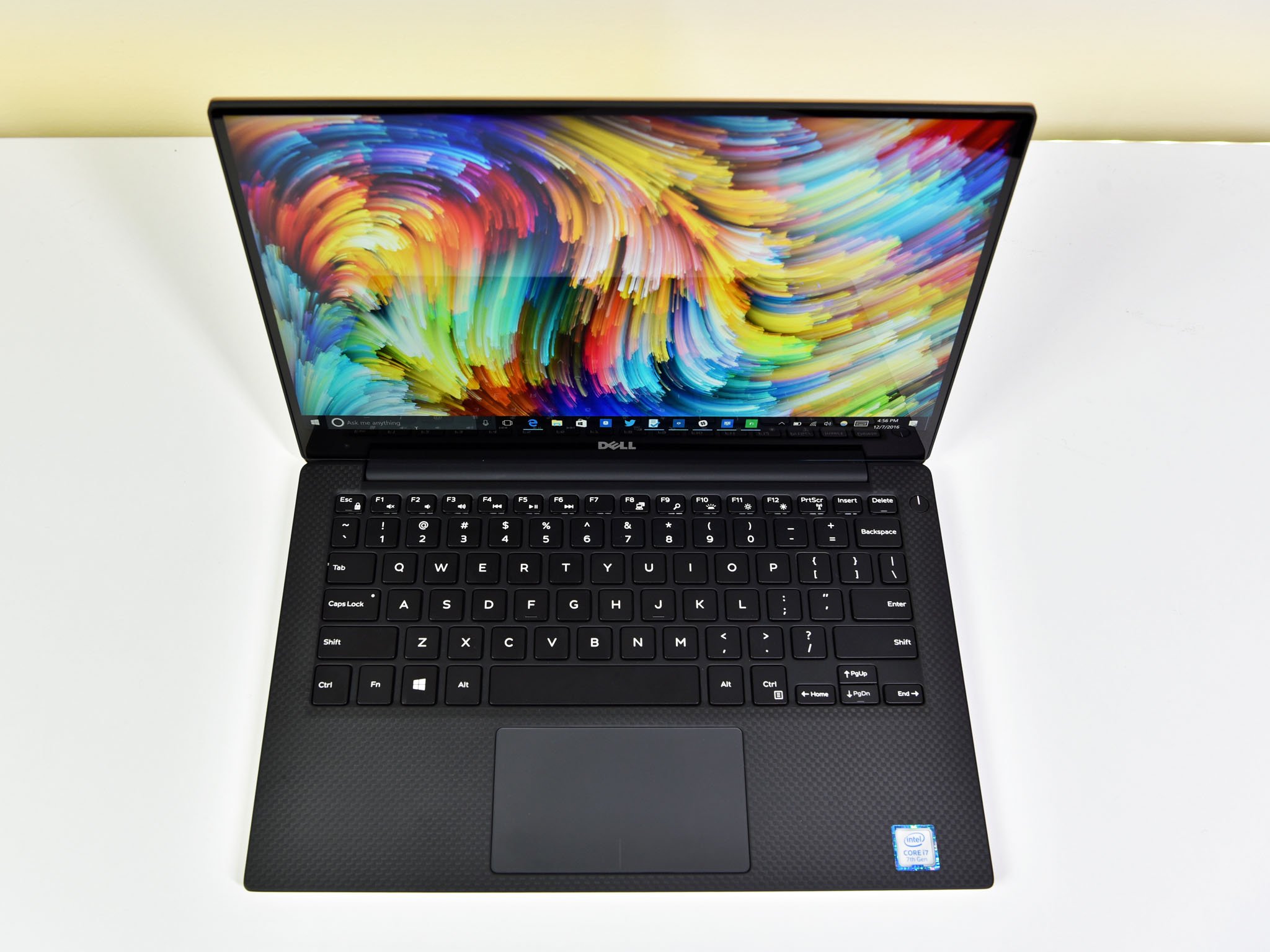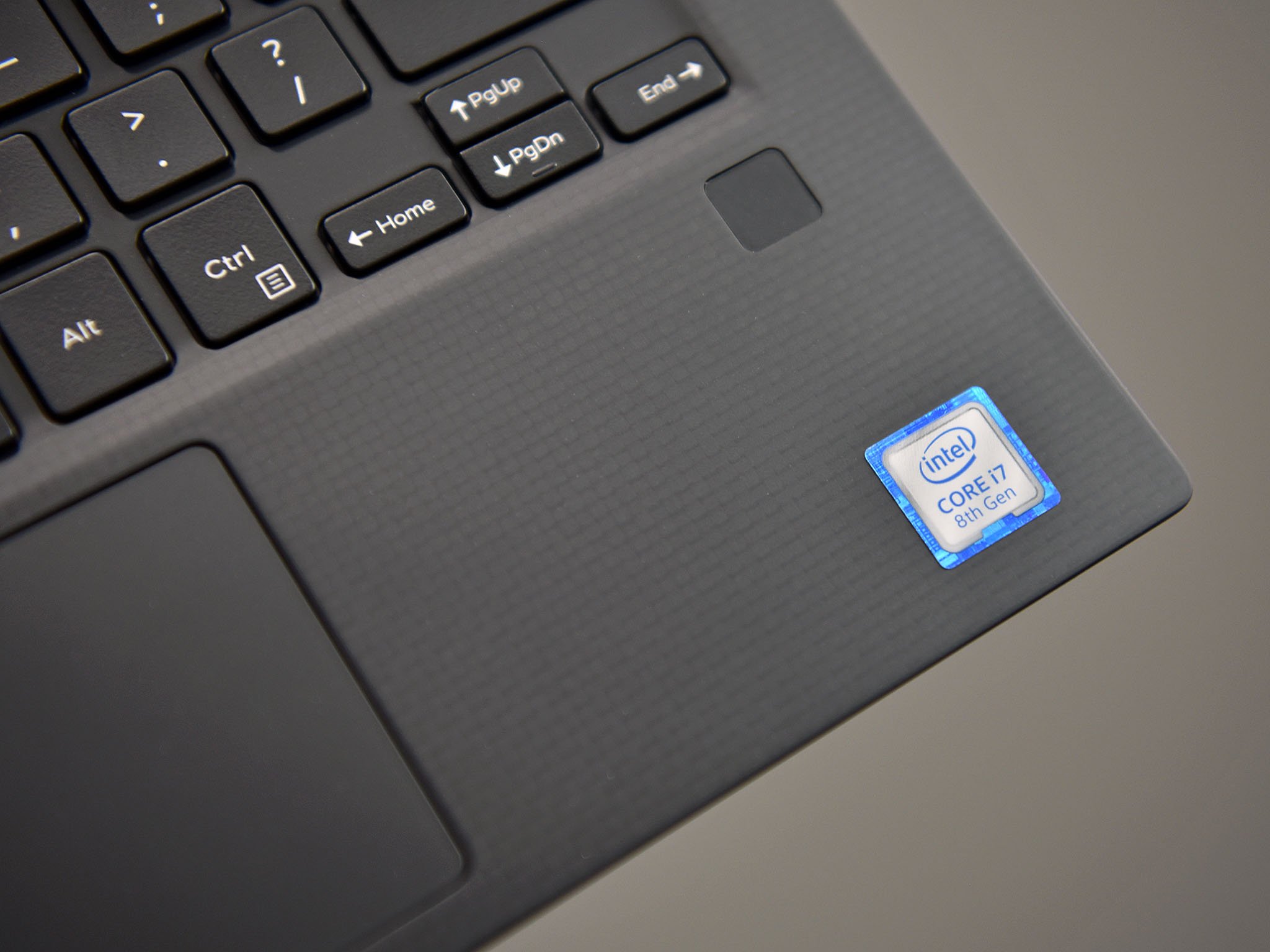Dell XPS 13 re-review: New eighth-gen quad-core delivers performance, outstanding battery
Still clinging to its iconic design, the new XPS 13 with 8th Generation Intel processor again nails the fundamentals.

Dell is a bit more conservative than I would like when it comes to its XPS line, hardly changing the design in the last few years. Nonetheless, it's a bit difficult to find anything glaringly wrong with the design of the XPS 13 or 15 – save for the oddly placed web camera.
For late 2017, Dell is playing it safe again with the refreshed XPS 13 9360 by upgrading the processor to the new Intel 8th generation Core i7-8550U. While clocked slightly below the latest Surface Book 2 13 the XPS 13 for Fall 2017 still benefits from those extra cores.
The RAM is also faster now with 2,133MHz instead of the slower 1,800 MHz from last year and users can opt for a solid 1TB of PCIe NVMe SSD for storage. The fingerprint reader for Windows Hello is still extra, but well worth the $25.
Dell XPS 13 specifications
| Category | Dell XPS 13 9360 |
|---|---|
| Processor | Intel Core i3 or i5, 7th GenIntel Core i7 8th Gen (NEW) |
| Internal Storage | Up to 1TB SSD |
| RAM | 4GB, 8GB or 16GBLPDDR3 2,133 MHz |
| Display | 1080p matte non-touchQHD+ glossy full touch |
| Graphics | Intel HD 620 |
| Ports | USB 3.1, 3.5mm jack, SD Card, USB-C Thunderbolt 3.1 |
| Wireless | Killer 1535Bluetooth 4.1802.11ac (Miracast enabled) |
| Battery | 60WHr |
| Weight | 2.8lbs (1.27 kg) |
| Dimensions | 11.98 x 7.88 x 0.33-0.60 in304.29 x 200.15 x 8.38-15.24 mm |
| Colors | Silver, Rose Gold |
I spent the last few weeks with the XPS 13 (9360), and it's hard to not like this device. Not only is the processor better now – including running cooler and quieter – but the battery life is outrageously good.
With the dazzling IGZO QHD+ display pushing over 10 hours on a single charge is a cinch. All that power plus leaving the charger at home is incredible.

I think Dell could do better with the keyboard by at least improving it a bit and maybe squeezing in a Windows Hello IR camera. But the company is comfortable with the XPS 13's design, and it still gets the basics right for display, typing, and that Precision Touchpad.
For those looking for an ultra-compact traditional laptop, the XPS 13 still sits in our top rankings.
Get the Windows Central Newsletter
All the latest news, reviews, and guides for Windows and Xbox diehards.
CPU
Geekbench 4.0 benchmarks (higher is better)
| Device | CPU | Single core | Multi core |
|---|---|---|---|
| Dell XPS 13 (9360) | i7-8550U | 4,690 | 14,334 |
| Razer Blade Stealth | i7-85550U | 4,567 | 14,095 |
| Dell XPS 13 (9360) | i7-6560U | 4,120 | 7,829 |
| Surface Book 2 13 | i7-8650U | 4,862 | 14,694 |
| Surface Laptop | i5-7200U | 3,725 | 7,523 |
| HP EliteBook x360 G2 | i7-7600U | 4,496 | 8,435 |
| Samsung Notebook 9 15 Ext | i7-7500U | 4,316 | 8,320 |
| Lenovo X1 Carbon | i5-7300U | 4,139 | 8,311 |
| HP Spectre 13 | i7-7500U | 4,100 | 7,469 |
It's quite evident that the new i7-8550U processor gives a big boost to the multi-core score due to the new quad-core design. Moreover, the single-core score gets a nice boost too. The new Microsoft Surface Book 2 13 edges out the XPS 13 slightly, but that's due to the higher-clocked chip found with the i7-8650U.
GPU
Geekbench 4.0 OpenCL (higher is better)
| Device | Compute score |
|---|---|
| Dell XPS 13 (NEW) | 22,555 |
| Surface Laptop | 19,256 |
| HP Spectre x360 15 | 28,868 |
| Samsung Notebook 9 15 Ext | 23,207 |
| HP EliteBook x360 G2 | 21,512 |
| Lenovo X1 Carbon | 20,932 |
| Dell XPS 13 (OLD) | 19,410 |
| Surface Book HD520 | 18,197 |
| Dell Latitude 7280 | 17,827 |
Although this is still the same HD 620 graphics for the updated XPS 13 we can see even the OpenCL score gets a slight overall boost compared to last year's model.
PCMark
PCMark (Home Conventional 3.0)
| Device | Score |
|---|---|
| Dell XPS 13 i7 | 3,280 |
| Surface Book 2 13 | 3,341 |
| Surface Laptop Core i5 | 2,494 |
| Samsung Notebook 9 15 Ext | 2,998 |
| Lenovo X1 Carbon Core i5 | 2,965 |
| HP EliteBook x360 G2 | 2,916 |
| Dell Latitude 7280 | 2,829 |
| HP Spectre x360 15 | 2,472 |
Again, we can see how the new 8th generation Core i7 processors significantly outpace last year's models. Both the Surface Book 2 13 and XPS 13 make large strides in PCMark 8.
SSD
CrystalDiskMark (higher is better)
| Device | Read | Write |
|---|---|---|
| Dell XPS 13 (NEW) | 1,368 MB/s | 847 MB/s |
| Dell XPS 13 (OLD) | 1,287 MB/s | 794 MB/s |
| Surface Book 2 13 | 1,411 MB/s | 1,202 MB/s |
| Surface Laptop | 423 MB/s | 237 MB/s |
| Lenovo X1 Carbon | 1,518 MB/s | 1,188 MB/s |
| Samsung Notebook 9 Ext | 1,365 MB/s | 1,213 MB/s |
| HP EliteBook x360 G2 | 1,129 MB/s | 916 MB/s |
| HP Spectre x360 15 | 1,128 MB/s | 862 MB/s |
Dell is still using well-sourced Samsung SSD's in many of the 512GB and 1TB options for the XPS 13 resulting in above average storage performance.
Pricing still starts at $799, but that's for the older 7th generation Intel Core i3 model.
The new 8th Generation Core i7's start at $999.99 and goes up to $2,125 with 16GB of RAM, 1TB SSD, and fingerprint reader. Luckily, Dell lets you configure the XPS 13 with basically whatever you want. Oh, and that Rose Gold option is an extra $50. Bling ain't cheap.
Check out our new benchmarks, watch the video review, and read my older full review of the XPS 13 (9360) for all the nitty-gritty details!
What do you think of the Dell XPS 13? Still a great buy for straight up laptop in 2017? Let me know in comments!
Pros:
- Still excellent design.
- New 8th gen CPU is awesome.
- Dazzling QHD+ IGZO display.
- More configuration choices.
- Outstanding battery life.
Cons:
- Higher models can get expensive.
- Still awkward web cam.
- No pen support.

Daniel Rubino is the Editor-in-chief of Windows Central. He is also the head reviewer, podcast co-host, and analyst. He has been covering Microsoft since 2007 when this site was called WMExperts (and later Windows Phone Central). His interests include Windows, laptops, next-gen computing, and wearable tech. He has reviewed laptops for over 10 years and is particularly fond of 2-in-1 convertibles, Arm64 processors, new form factors, and thin-and-light PCs. Before all this tech stuff, he worked on a Ph.D. in linguistics, performed polysomnographs in NYC, and was a motion-picture operator for 17 years.
